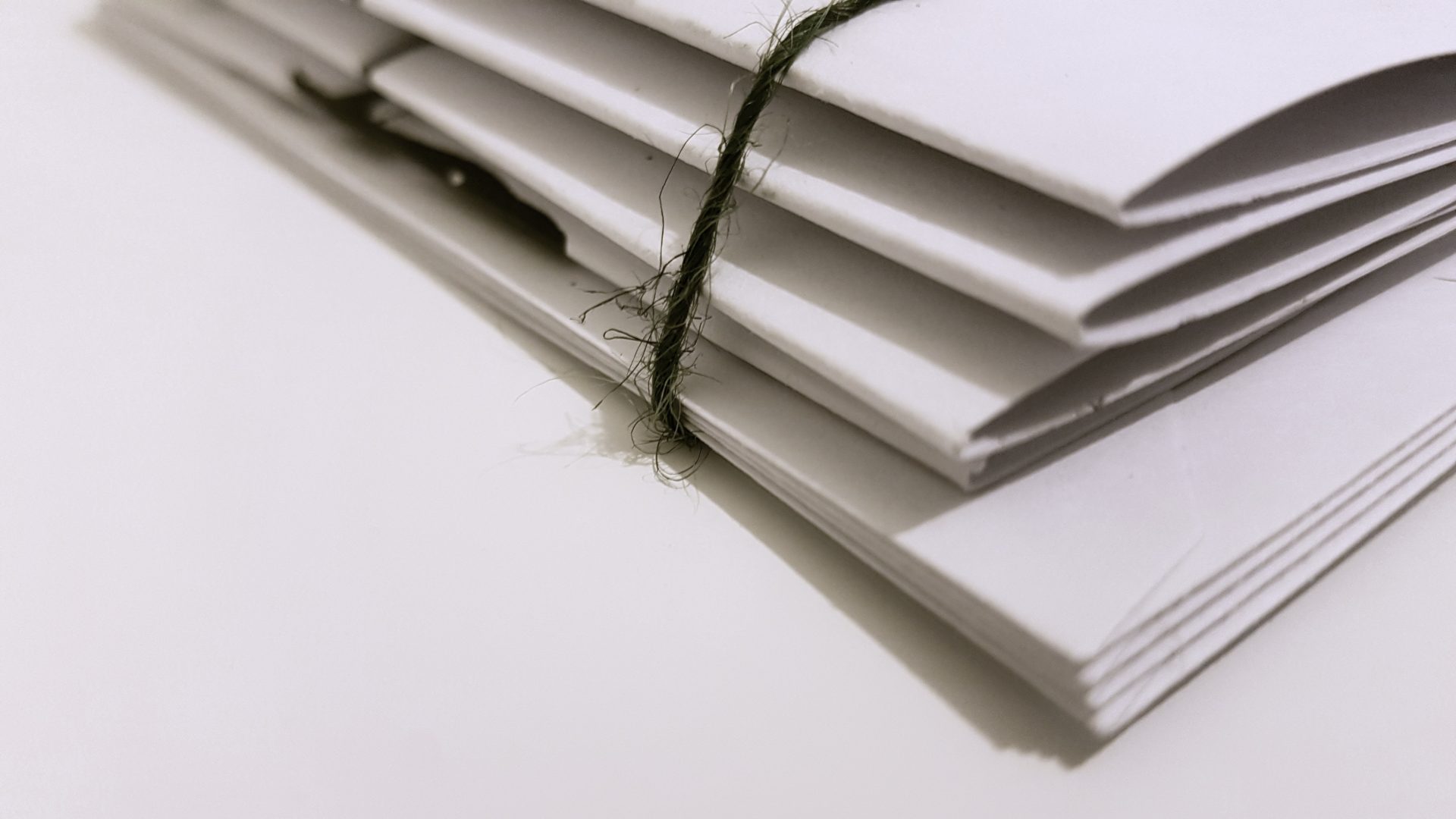The Guide to Being a Great Interviewee
A lot of work goes into an interview from both the employer and the applicants end.
From the employer’s perspective, they must go through a list of applicants, setup initial phone screens, and then setup time for an in-person interview.
From the applicant’s perspective, they must continue to apply to positions which they believe they are qualified for, prepare for a phone screen, and then prepare for the in-person interview.
Even the most seasoned applicant gets nervous before an interview.
Interviews are, generally, the applicants best shot or chance at being offered the job opportunity.
That is why we are going to discuss and provide the definitive guide to being a great interviewee.
Being a great interviewee requires more than just having an understanding of the material or your own experience.
There are subtle nuances that can help make or break an interview.
Understanding these subtleties can help you to not only get the job offer, but to also calm your nerves before the big day.
What to do 3-Days Before the Interview?
Before the interview even begins, you will want to start preparing for it.
You will want to be as prepared as possible and be able to anticipate any concerns.
Furthermore, you don’t want to delay your preparation until the last minute.
Doing so could have disastrous affects and could negatively affect your probability of being offered the position.
Practice, Practice, Practice
Practicing and conducting a mock interview is of the utmost importance.
Doing so well help you to frame the interview and to assess any concerns the interviewer may have.
Mock interviews should be done with a trusted family member or friend.
You should instruct them to ask a number of commonly asked interview questions in a manner that an actual interviewer may do.
Furthermore, you will want to stay “in character” throughout the entire mock interview.
You shouldn’t fool around or skipped questions, many of which may actually be asked during the real thing.
Take the mock interview seriously and be sure to answer in the same manner that you would in a real interview.
Lastly, mock interviews are one of the best ways to calm your nerves before an interview.
You will feel more relaxed and comfortable answering commonly asked interview questions.
In addition, you will have a better understanding of how to approach those questions and how to more effectively answer them.
Get Excited
Interviews are exciting.
They are the single greatest opportunity and chance at landing the job offer.
One key to acing an interview and being a great interviewee is to be excited about that opportunity.
You should motivate and excite yourself of those facts and how this opportunity could be life changing.
In addition, you should work on “pumping” yourself up.
Remind yourself why your resume was chosen and what your accomplishments are.
You should think critically and carefully about how you got to this point and the hard-work you put in.
This will help to ease your mind and nerves and allow you to step back and realize that you deserve this.
Meditate on What You Want to Present
Each interview is different.
Some interviewers are more engaging, while others look for the interviewee to take the reins.
Some employers look for a well-polished candidate, while others look for an exciting and creative one.
Before the interview, you should determine what type of company you are interviewing with and how you want to present yourself.
Will this be a more traditional, formal company?
If so, how could you accommodate to that and the employer’s expectations?
Similarly, if this is an interview with a company that has a startup feel, how can you convey that, that is a culture that you are comfortable with?
While you won’t have the perfect answer, you should be able to make some basic determinations.
This will help you to get your mindset in the correct frame and to visualize how the interview will go.
You will be able to picture how you will present yourself and how you will convey the information the interviewer needs to make the best choice.
Check LinkedIn
While there aren’t too many sites out there that advise checking LinkedIn before your interview, we definitely do.
You should look-up your interviewer(s) on LinkedIn before the interview.
With nearly 70% of employers looking through a candidates social media profile, why wouldn’t you do the same?
Looking through your interviewers LinkedIn profile can help you in a number of ways.
Firstly, it is a great way to place a face to the name.
This will help you to feel more comfortable with the interview and the interviewer before it even begins.
Secondly, you can check to see if you have any mutual connections.
Having mutual connections is a great way to “break the ice” during an interview.
You can both discuss your backgrounds and how you came to know the mutual connection.
Further, if they’re close with that person, you might just get a good recommendation from them.
Lastly, you can look to see if you have any mutual work or academic history.
We’ve discussed how alumni connections can help with networking opportunities and what better opportunity than with the interviewer?
Having similar work or academic history’s is a great connection and one that can be bonded over during the interview.
Research the Company
In addition to reviewing your own resume and conducting a mock interview, you should conduct thorough research on the company.
This includes reading reviews on Glassdoor, perusing the company website, and looking through any available financial documents.
Doing so well help you to feel more comfortable with the company and to have a better understanding of what they do and provide.
Research the Job Listing
In addition to reviewing the company, you should review the job listing one more time.
Take notes on what skills they are looking for and what requirements they have indicated.
You should think about how you have those requirements and skills and look to make mental notes on times when you had to use them.

What to do the Night Before the Interview?
The night before the interview is your time to prepare for the big day.
You should have everything you need prepared and ready for the following morning.
In addition to things you should bring to the interview, you should prepare mentally.
This includes meditating to calm nerves and getting a good night’s sleep.
Print Extra Copies of Your Resume
Preparing for the interview means bringing along multiple copies of your resume.
Although the interviewer should have a copy, they may have misplaced it or forgotten it at their desk.
Being prepared means printing multiple copies and being able to provide one to the interviewer.
In addition, many times if an interview goes well, the interviewer may invite additional members to come and speak with you.
If this happens, you will want to have an adequate number of resumes to provide to each member.
We always recommend printing at-least five copies of your resume and to print them on resume paper.
Prepare Your Backpack or Briefcase
You don’t want to show up for the interview empty-handed.
Nor do you want to show up carrying your resumes in your hand.
You should place your resumes and any other additional documents in a professional resume folder.
This folder will house all your documents and give you a more professional look.
Place the resume folder in a professional bag or briefcase.
You should also include any business cards, pens to take down notes, and a notepad.
Prepare Your Route
In this day and age, with Google and Apple Maps, it’s easy to assume the directions to any location are at our fingertips.
And while this is true, you will still want to prepare your route and how you are planning on getting there.
Double-check the night before your planned route and how long it will take you to arrive.
You should look to add in an additional 20-minutes as a margin of error, in case something happens or there is traffic.
Doing so will help you to arrive early for the interview.
Write Down a List of Questions to Ask the Interviewer
Interviews are a two-way street, with both the interviewer and interviewee asking questions.
You should prepare a list of 3-5 questions to ask the interviewer regarding the role and the company.
You can write these questions down on your notepad and bring them with you to the interview.
Having these questions with you will ensure that you have questions to ask towards the end of the interview.
In addition, it will help you look and appear more prepared in front of the interviewer.
As a side note, you should avoid asking personal or HR specific questions, especially anything regarding salary, time off, or work from home opportunities.
Those questions are answered once you have been offered the position.
Prepare Your Outfit
Perhaps the most important item during an interview is your outfit.
While you don’t need to be decked out in designer brands, you should look to dress approximately 1-2 levels of title above yours.
For professional, corporate positions, men should wear a suit and tie.
The suit should be well-fitted, clean, and wrinkle-free.
You should also opt for colors which are neutral in tone and convey confidence, without calling too much attention to yourself.
For women, a blazer and blouse combination are a safe choice.
The colors typically chosen are either black or blue, so again sticking with the neutral tones.
You can also opt to go with a sweater and black dress pants or a black dress with tights.

What to do the Day of the Interview?
It’s the big day!
The day of the interview can be an exhausting one, make sure you’re well hydrated and caffeinated before the interview begins.
Use copious amounts of deodorant and a few spritzes of perfume or cologne to ensure your hygiene is on point.
Don’t forget your bag or briefcase!
Arrive 15-Minutes Early
It’s best to start the interview on the right foot and this means arriving to the interview location between 15-20 minutes early.
Arriving early will show the interviewer that you are reliable and are able to manage your time effectively.
It will also give you an opportunity to get your things in order, relax and use the restroom, and ensure that you are able to find the location of the interview.
Present Yourself Confidently
How you present yourself is a telltale sign of how well you believe in yourself.
If you believe you are the best candidate for the role, you should show that by being confident and engaging.
Make sure your clothes are fitted and clean and walk with purpose.
Give the interviewer a firm handshake and look them in the eyes when introducing yourself.
Turn-Off Your Electronics
You don’t want your electronics to disturb the interview.
Be sure to turn-off your phone and any additional electronics you may have.
You should give the interviewer your undivided attention.
Having your phone or other electronics go off during the interview is not only distracting but can throw off the flow of the interview and is rude.
Be Attentive
You should be attentive and engaged during the interview.
Nod along with the interviewer and agree to the points they are making.
Feel free to interject when you have a similar point or example.
Don’t talk too much during the initial introduction, but don’t remain silent throughout.
You should be capable of making small talk and remaining engaged.
Utilize the STAR Method
The STAR method is a formula for answering behaviorally based questions.
It is a great technique for bringing up certain situations which you’ve previously dealt with and explaining how you were able to assist.
Practice the STAR method before the interview and utilize its formula when answering the interviewer’s questions.
Wipe Off Errors
Nearly everyone makes a small error during the interview.
Whether it’s misremembering a topic or mispronouncing the interviewers name, just know it happens.
You shouldn’t sweat those mistakes.
Rather, remain cool and composed, laugh off the error, and keep going.
What to do After the Interview?
Congratulations on completing the interview!
Now that you’re done, be sure to compose a thank-you, follow-up email to the interviewer.
You should thank them for their time in meeting with you, reference a particular point that was brought up during the interview, and remind them why you are the best candidate for the role.
Towards the end of the email, let them know that you are available for any additional questions they may have.
Ideally, you should look to send a follow-up email within 24-hours after the interview was completed.
This is when the interview is fresh on both your and the interviewers mind.
In addition, this is when the interviewer will still be assessing all the candidates and making a final decision.








